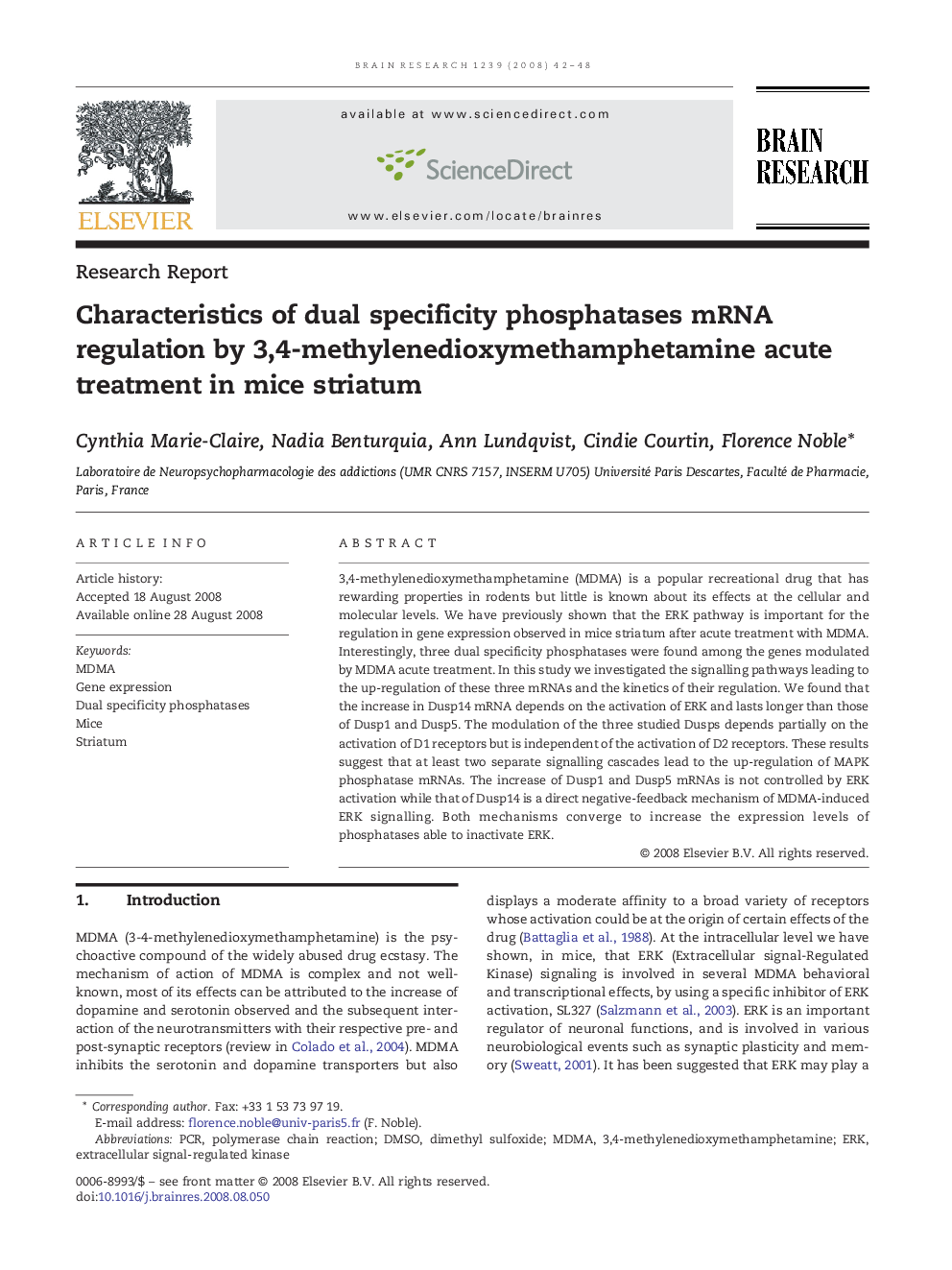| Article ID | Journal | Published Year | Pages | File Type |
|---|---|---|---|---|
| 4329021 | Brain Research | 2008 | 7 Pages |
3,4-methylenedioxymethamphetamine (MDMA) is a popular recreational drug that has rewarding properties in rodents but little is known about its effects at the cellular and molecular levels. We have previously shown that the ERK pathway is important for the regulation in gene expression observed in mice striatum after acute treatment with MDMA. Interestingly, three dual specificity phosphatases were found among the genes modulated by MDMA acute treatment. In this study we investigated the signalling pathways leading to the up-regulation of these three mRNAs and the kinetics of their regulation. We found that the increase in Dusp14 mRNA depends on the activation of ERK and lasts longer than those of Dusp1 and Dusp5. The modulation of the three studied Dusps depends partially on the activation of D1 receptors but is independent of the activation of D2 receptors. These results suggest that at least two separate signalling cascades lead to the up-regulation of MAPK phosphatase mRNAs. The increase of Dusp1 and Dusp5 mRNAs is not controlled by ERK activation while that of Dusp14 is a direct negative-feedback mechanism of MDMA-induced ERK signalling. Both mechanisms converge to increase the expression levels of phosphatases able to inactivate ERK.
